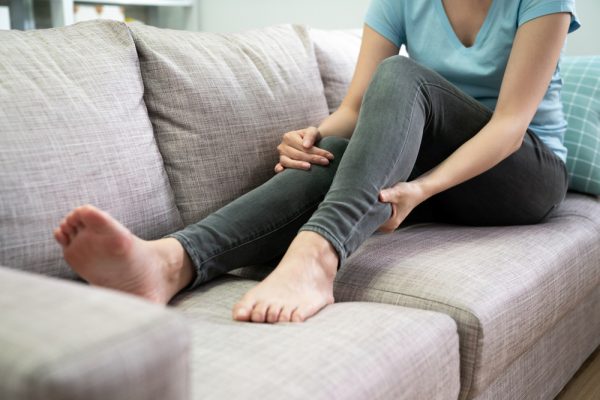Better Sleep For Better Pain Relief




The Intertwined Relationship: Sleep Apnea and Chronic Pain
What is Sleep Apnea?
Sleep apnea is a serious sleep disorder characterized by repeated episodes of breathing interruptions during sleep. These pauses in breathing can last from a few seconds to over a minute and can occur multiple times throughout the night. Among the types of sleep apnea, central sleep apnea (CSA) and obstructive sleep apnea (OSA) are particularly significant, each with distinct causes and implications for treatment. Distinguishing between these forms is crucial for accurate diagnosis and effective management. As a result, individuals with sleep apnea often experience fragmented sleep, leading to excessive daytime fatigue, impaired cognitive function, and an increased risk of various health complications.
What is Chronic Pain?
Chronic pain is defined as persistent or recurring pain that lasts for an extended period, typically beyond the expected healing time for an injury or illness. This type of pain can be caused by various underlying conditions, such as arthritis, fibromyalgia, neuropathy, or past injuries. Unlike acute pain, which serves as a warning signal, chronic pain often lacks a clear purpose and can significantly impact an individual’s quality of life. Chronic pain patients often undergo chronic opioid therapy, a treatment that can influence their sleep quality and potentially contribute to sleep disorders.
The Bidirectional Link Between Sleep Apnea and Chronic Pain
The relationship between sleep apnea and chronic pain is complex and bidirectional. Sleep apnea can contribute to the development and exacerbation of chronic pain, while chronic pain can also disrupt sleep patterns and worsen sleep apnea symptoms. Pain and sleep disturbances are closely interconnected, with over 70 percent of patients with chronic pain disorders experiencing significant sleep disruption, which can further exacerbate symptoms of sleep apnea.
How Sleep Apnea Contributes to Chronic Pain
Sleep apnea can lead to chronic pain through various mechanisms, including:
- Inflammation: Repeated oxygen deprivation and stress on the body caused by sleep apnea can trigger inflammatory processes, contributing to pain sensitivity.
- Altered Pain Perception: Sleep fragmentation and poor sleep quality associated with sleep apnea can lower pain thresholds and increase pain perception. Additionally, ‘sleep-disordered breathing’ and ‘sleep disorders’ can exacerbate chronic pain by affecting sleep quality and increasing pain sensitivity.
- Hormonal Imbalances: Sleep apnea can disrupt the production and regulation of hormones, such as cortisol and growth hormone, which play a role in pain modulation.
How Chronic Pain Affects Sleep Apnea
On the other hand, chronic pain can also exacerbate sleep apnea symptoms by:
- Disrupting Sleep: Pain can make it difficult to fall asleep or stay asleep, leading to sleep fragmentation and increased sleep apnea episodes.
- Contributing to Weight Gain: Chronic pain can limit physical activity and contribute to weight gain, a known risk factor for sleep apnea.
- Increasing Stress and Anxiety: The emotional and mental strain of living with chronic pain can heighten stress and anxiety levels, which can worsen sleep apnea symptoms.
Benefits of Treating Sleep Apnea for Chronic Pain
Improved Sleep Quality and Less Fatigue
Treating sleep apnea helps reduce breathing interruptions during sleep, allowing for deeper and more refreshing rest. This can significantly reduce the fatigue and tiredness often experienced by those with chronic pain, helping you feel more energized and rested when you wake up.
Reduced Inflammation and Pain Sensitivity
Sleep apnea is linked to increased inflammation in the body, which can make chronic pain conditions feel worse. By managing sleep apnea effectively, particularly through the use of continuous positive airway pressure (CPAP) treatment, inflammation levels may decrease. This can lead to a reduction in overall pain sensitivity and discomfort, as well as a notable improvement in pain intensity for those suffering from obstructive sleep apnea (OSA).
Better Pain Relief
Addressing sleep apnea can work together with your existing pain management strategies to provide more consistent and substantial relief. With improved sleep quality and lower inflammation, you may find that your pain medication or therapies are more effective in reducing your chronic pain symptoms.
More Energy and Improved Well-Being
When you sleep better and have less pain, you’re likely to experience higher energy levels throughout the day. This boost in vitality can lead to a greater sense of overall well-being, allowing you to engage more fully in daily activities and enjoy a better quality of life.
Lower Risk of Related Health Issues
Sleep apnea is associated with various health complications, such as heart problems, diabetes, and high blood pressure, which can make chronic pain conditions worse. By effectively treating sleep apnea, you can reduce your risk of developing or worsening these related health issues, helping to safeguard your overall health and well-being.
Better Cognitive Function and Productivity
Adequate sleep is essential for optimal cognitive abilities, including memory, decision-making, and problem-solving. By addressing sleep apnea, you may experience improved cognitive function and enhanced productivity, enabling you to perform better in various tasks and activities.
Improved Mood and Emotional Resilience
Sleep plays a crucial role in regulating mood and emotional well-being. Chronic sleep disturbances, like those caused by sleep apnea, can contribute to irritability, mood swings, and emotional instability, which can make chronic pain feel worse. By improving sleep quality, you’re likely to experience enhanced mood stability and emotional resilience, allowing you to better cope with the challenges associated with chronic pain.





Tips for Managing Chronic Pain While Suffering from Sleep Apnea
- Adhere to your prescribed sleep apnea treatment (e.g., CPAP, oral appliances)
- Consult with a sleep medicine specialist to explore comprehensive treatment options, including CPAP therapy and other interventions tailored to manage sleep-disordered breathing and obstructive sleep apnea, especially in patients with chronic pain or those on opioids.
- Incorporate gentle exercise and stretching into your routine
- Practice relaxation techniques like deep breathing, meditation, or yoga
- Maintain a healthy diet and weight management plan
- Explore alternative therapies like massage, acupuncture, or cognitive-behavioral therapy
- Stay hydrated and avoid substances that can worsen pain or sleep quality
- Prioritize good sleep hygiene and establish a consistent sleep routine
Financing Sleep Apnea Treatment
Cash, Check, or Major Credit Cards
At Dr. Sheila Birth’s practice, we understand that healthcare expenses can be a concern. For your convenience, we accept cash, checks, and major credit cards as payment methods for sleep apnea treatment and related services.
CareCredit
To make your treatment more affordable, we also partner with CareCredit, a healthcare financing company that offers flexible payment plans. With CareCredit, you can spread the cost of your treatment over time, allowing you to prioritize your health and well-being without breaking the bank.
LendingClub
In addition to CareCredit, we collaborate with LendingClub, another reputable financing option. LendingClub provides personal loans for healthcare expenses, empowering you to access the treatment you need while managing your budget effectively.

Frequently Asked Questions
Can sleep apnea cause chronic pain, or does chronic pain lead to sleep apnea?
Conversely, chronic pain can disrupt sleep patterns, worsening sleep apnea symptoms. The bidirectional relationship underscores the need for comprehensive management of both conditions to improve patient outcomes.
Are there any specific types of chronic pain that are more closely linked to sleep apnea?
Can lifestyle changes help manage both sleep apnea and chronic pain?
How long does it typically take to experience improvements in chronic pain after starting sleep apnea treatment?
Break Free from Sleep Apnea and Chronic Pain with Dr. Sheila Birth
If you’re a resident of Fort Worth, TX, or the surrounding areas of River Oaks, Arlington, or Westover Hills, TX, and struggling with the debilitating effects of chronic pain and sleep apnea, it’s time to take action. At Dr. Sheila Birth’s practice, we understand the profound impact that sleep apnea can have on chronic pain conditions, and we’re committed to providing comprehensive solutions to help you reclaim your life.
Don’t let sleep apnea and chronic pain control your well-being any longer. Take the first step towards a healthier, pain-free future by scheduling an appointment with us today. Call 817-502-9103, and our dedicated team will guide you through a personalized treatment plan tailored to your unique needs. Embrace the power of restorative sleep, alleviate your chronic pain, and rediscover the joy of living life to the fullest.
